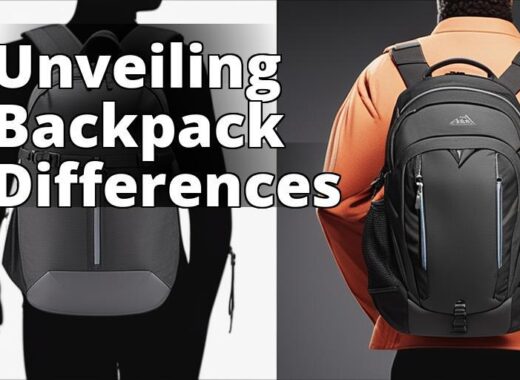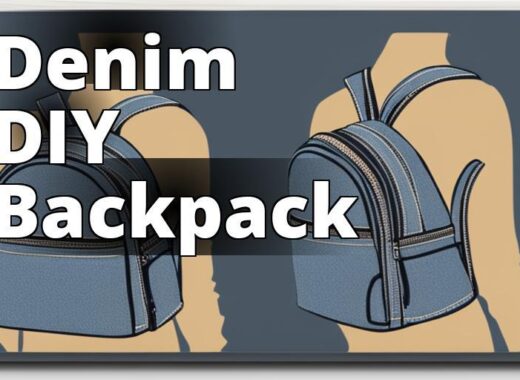Are you planning a hiking trip soon? One of the essential items you need to consider is a backpack. Backpacks are an essential piece of equipment for hiking, and they play a crucial role in ensuring a successful and enjoyable trip. In this article, we will discuss why backpacks are important in hiking, the different types available, how to choose the right one, pack it properly, and maintain it for optimal performance.
Why Backpacks Matter in Hiking
Backpacks are important in hiking for several reasons:
- Reducing the risk of injury and fatigue: Backpacks distribute weight evenly, reducing the risk of injury and fatigue. By carrying weight on your back, you avoid putting unnecessary strain on your shoulders, neck, and hips. This allows you to hike longer distances and carry more gear comfortably.
- Allowing hikers to carry necessary gear and supplies: Backpacks allow hikers to carry all the necessary gear and supplies for their trip, such as food, water, clothing, shelter, and other essentials. Without a backpack, hikers would have to carry everything in their hands, making it nearly impossible to hike any significant distance.
- Enabling hikers to spend extended periods in the wilderness: Backpacks enable hikers to spend extended periods in the wilderness, including overnight trips. With the right backpack, hikers can carry everything they need to stay comfortable and safe in the wilderness.
- Providing balance and stability on uneven terrain: Backpacks provide balance and stability on uneven terrain. By keeping weight close to your body, you can maintain your center of gravity, making navigating rough terrain easier and keeping your balance.
Importance of Backpacks in Hiking
- Backpacks distribute weight evenly, reducing the risk of injury and fatigue.
- They allow hikers to carry necessary gear and supplies and spend extended periods in the wilderness.
- Backpacks provide balance and stability on uneven terrain.
Types of Backpacks
| Feature | Description |
|---|---|
| Size | Choose a backpack that can carry all your gear comfortably but not so large that it becomes too heavy to carry. |
| Weight | Choose a lightweight backpack to avoid discomfort and fatigue. |
| Durability | Choose a backpack made from durable materials to withstand the rigors of the outdoors. |
| Comfort | Choose a backpack that is comfortable to wear for extended periods. |
| Pockets | Pockets allow you to organize your gear for easy access. |
| Straps | Straps help distribute weight evenly and keep your backpack secure on your back. |
| Ventilation | Ventilation is essential for keeping your back cool and dry during hot weather. |
There are several types of backpacks available for hiking, including:
Daypacks for Short Hikes
Daypacks are small, lightweight backpacks designed for short hikes and day trips. They typically have a capacity of 20-35 liters and are perfect for carrying snacks, water, and other essentials.
Overnight Packs for One-Night Camping Trips
Overnight packs are larger than daypacks and are designed for one-night camping trips. They typically have a capacity of 35-50 liters and can carry all the necessary gear for a comfortable overnight stay.
Multi-Day Packs for Longer Trips
Multi-day packs are larger than overnight packs and can carry all the necessary gear for longer trips. They typically have a capacity of 50-70 liters and are designed to distribute weight evenly for extended periods of hiking.
Expedition Packs for Mountaineering
Expedition packs are the largest backpacks and are designed for mountaineering and other extreme outdoor activities. They typically have a capacity of 70+ liters and are designed to carry heavy loads for extended periods.
Frameless Packs for Ultralight Hiking
Frameless packs are designed for ultralight hiking and are perfect for hikers who want to travel light and fast. They typically have a 20-35 liters capacity and are designed to be lightweight and compact.
Choosing the Right Backpack for Hiking
When choosing a backpack for hiking, consider the following factors:
- Size: Your backpack should be large enough to carry all your gear comfortably but not so large that it becomes too heavy.
- Weight: A heavy backpack can cause discomfort and fatigue, so choose a lightweight backpack.
- Durability: Your backpack should be made from durable materials to withstand the rigors of the outdoors.
- Comfort: Your backpack should be comfortable to wear for extended periods.
Backpack features that are important for hiking include pockets, straps, and ventilation. Pockets allow you to organize your gear for easy access, while straps help distribute weight evenly and keep your backpack secure on your back. Ventilation is essential for keeping your back cool and dry during hot weather.
Properly fitting your backpack is essential to avoid discomfort and injury. Your backpack should sit comfortably on your hips, with the weight distributed evenly across your shoulders and hips. The shoulder straps should be snug but not too tight, and the hip belt should be adjusted to fit snugly around your hips.
Personal Story: How Choosing the Right Backpack Saved My Hiking Trip
During a recent hiking trip, my friends and I decided to take on a challenging trail in the backcountry. I was carrying a backpack I had borrowed from a friend, not realizing it wasn’t the right size for me. As we started our ascent, I quickly realized that the backpack was too large and the weight was not distributed properly, causing me to lose my balance and stumble on the rocky terrain.
After a few falls, I knew I needed to make a change. Luckily, we had a rest stop coming up, and I took the opportunity to adjust my backpack and redistribute the weight. I also loosened and tightened the straps to ensure a proper fit.
The difference was immediate. As we continued our hike, I felt much more balanced and stable on the uneven terrain. The backpack felt like an extension of my body, and I could move more freely and confidently.
By the end of the hike, my friends were exhausted and complaining about sore backs and shoulders. I, on the other hand, felt energized and ready for more. It was then that I realized the importance of choosing the right backpack for hiking and the impact it can have on your overall experience.
From that day on, I made a promise to myself to always choose the right backpack for my hiking trips, and to never compromise on size or fit.
Packing Your Backpack for Hiking
When packing your backpack for hiking, remember to:
- Distribute weight evenly: Heavy items should be packed close to your back, while lighter items can be packed on top.
- Organize gear for easy access: Organize your gear for easy access and to pack food and water in easily accessible pockets.
- Pack light: Only bring essential items and leave unnecessary items at home.
Adjusting your backpack for comfort and balance is essential for a successful hiking trip. Your backpack should be adjusted to sit comfortably on your hips, with the weight distributed evenly across your shoulders and hips. The shoulder straps should be snug but not too tight, and the hip belt should be adjusted to fit snugly around your hips.
Maintaining and Caring for Your Backpack
To prolong your backpack’s lifespan, clean and store it properly, repair minor damages, and replace worn-out components. After each trip, your backpack should be cleaned and dried thoroughly. It should be stored in a cool, dry place away from direct sunlight. Small tears or holes should be repaired immediately to prevent them from getting larger. Worn-out components, such as zippers and straps, should be replaced immediately.
Conclusion
Backpacks are essential for hiking, enabling hikers to carry necessary gear and supplies, spend extended periods in the wilderness, and maintain balance and stability on uneven terrain. Hikers can ensure a successful and enjoyable trip by choosing the right backpack, packing it properly, and maintaining it for optimal performance. Remember to choose a backpack that fits comfortably, is made from durable materials, and has the necessary features for hiking. Pack light, distribute weight evenly, and keep your backpack clean and well-maintained for your next hiking adventure.
Questions and Answers
Q.Who needs a backpack for hiking?
A.Anyone who wants to carry gear and supplies comfortably.
Q.What features should a good hiking backpack have?
A.Good padding, adjustable straps, and multiple pockets.
Q.How do backpacks make hiking easier?
A.They distribute weight evenly and keep supplies organized.
Q.What if I don’t want to carry a backpack while hiking?
A.You can use a waist pack or hire a porter to carry your gear.
Q.Why are backpacks better than other bags for hiking?
A.They are designed with hikers in mind and offer better support.
Q.How can I choose the right size backpack for hiking?
A.Consider the length of your trip and how much gear you need to carry.




